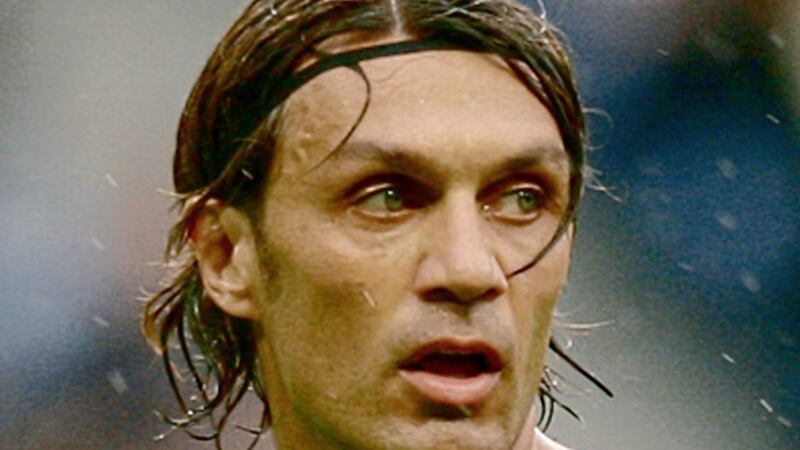Paolo Maldini grew up a blue blood in Milan. He was the the son of Cesare Maldini, a man who had both played for and managed the great AC.
It was no great surprise therefore when young Paolo followed in his father’s footsteps, joining the AC Milan academy at 10 years old and going on to win seven Serie A and five European Cup / Champions League titles.
Vinnie Jones didn’t start a ‘proper’ football career until he was around 19, with Wealdstone, having to balance that with his day job as a hod-carrier.
In 1986 he joined Wimbledon, where he won the 1988 FA cup final, playing against the footballing royalty of Liverpool, triggering the famous John Moston line “the Crazy Gang have beaten the Culture Club”.
Maldini and Jones also went on to represent their countries and, it can be argued, squeezed every ounce out of the opportunities presented to them in the game.
Both came from very different backgrounds and followed different routes into the professional game.
They were surrounded by different levels of support, facilities, management and indeed teammates.
Two environments worlds apart.
Football is littered with similar examples: the great Pele grew up in poverty, using a sack stuffed with newspaper as a ball, while Gianluca Vialli grew up the son of a millionaire in a house with 60 rooms.
The commonality between all these players however is that no matter what their start in life they drove themselves to be the best they could be.
They acknowledged their environment, sure; but they made sure that they weren’t defined by that, the drive to succeed came from within.
It’s the same in the world of work; you are going to have different environments, different opportunities, requirements, demands, deadlines, equipment, peers, timescales etc but none of that can determine how you apply yourself.
In the real world, no one is responsible for your career but you; managers, friends, colleagues, family can all contribute, hinder, help, advise, cajole, criticise and encourage but ultimately it’s your deal.
If you want to slack, take the easy option, do just as much as you have to and nothing more, mess around, break the rules etc; then that’s up to you.
Of course it may well lead to consequences, but it still remains your choice.
Too often we can be guilty of blaming the things or people around us, rather than look inward and doing some self-analysis.
The bottom line is that no matter if you are surrounded by the best support network money can buy, or if you have to struggle for everything; it’s still down to you how you actually use what you’ve been given.
Maldini could have phoned it in, enjoying all the trappings that come with a world-renowned club and never seeing his potential realised.
Equally Jones could have decided it was all too stacked against him, given up and settled for the building site.
They didn’t however; they took control and maximised their opportunity.
And when you sit back and think about it, there are a multitude of things that you can control in work (and in life) which don’t rely on external factors:
• How you prepare
• How you treat others
• Whether you listen or not
• Your timekeeping
• The commitment you give
• The amount of effort you put in
• The attention you pay to detail
• How willing you are to learn
• The respect you give people
Ask yourself: do I come into work every day and give 100%? Do I make the most of the things that I can control? If not, why not? What can I effect change upon that relies on me alone?
Patrick Kavanagh once wrote that ‘Gods make their own importance’; so should you.
:: Barry Shannon is HR director at TSYS








